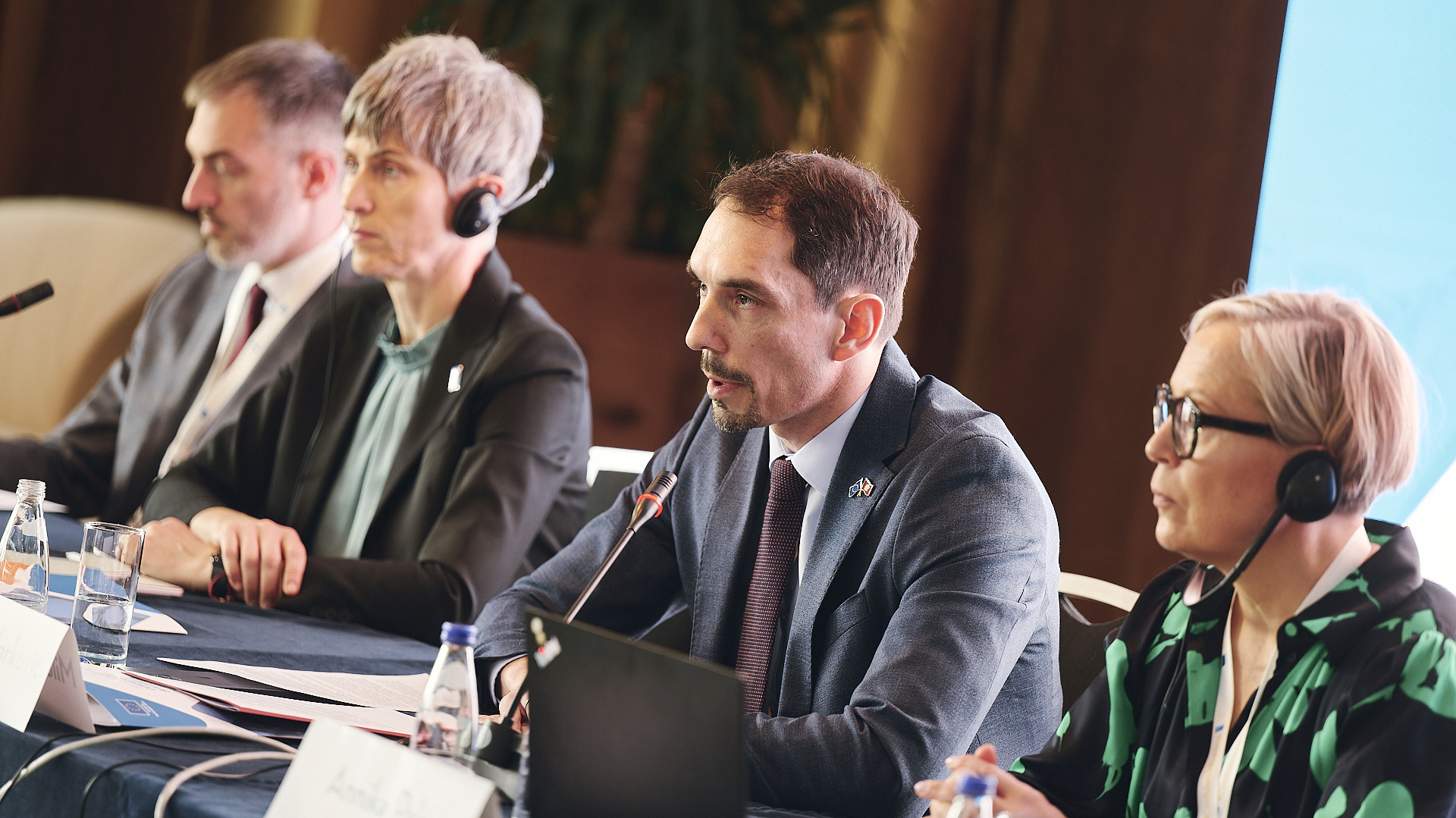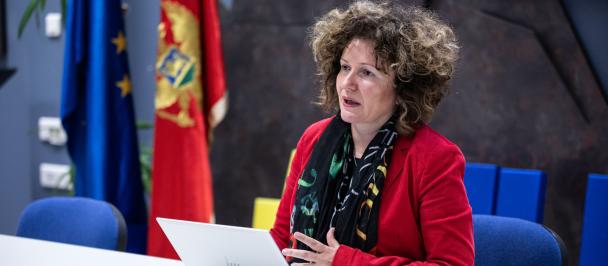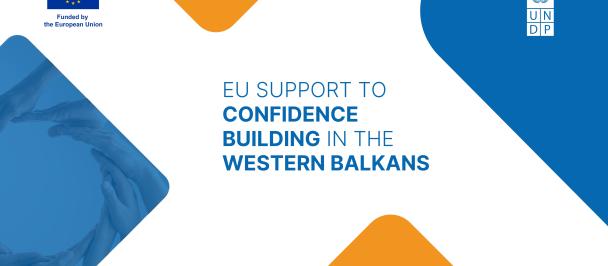Regional meeting of prosecutors, judges, and defense attorneys in war crimes cases
Regional cooperation among the judiciaries important for the prosperity of the Western Balkans
April 16, 2024

The improvement of regional cooperation between judicial authorities in the Western Balkans is crucial for solving the remaining cases of war crimes and the progress of the entire region, it was stated at the regional meeting of prosecutors, judges and defense attorneys, organized by the United Nations Development Programme (UNDP), with the financial support of the European Union (EU).
A two-day meeting on the topic of admissibility and transfer of evidence was organized in Budva, in cooperation with the Supreme State Prosecutor's Office of Montenegro, within the regional project "EU support for Confidence Building in the Western Balkans", funded by the EU and implemented by UNDP.
Among more than 40 participants were prosecutors, judges, and defense attorneys from Bosnia and Herzegovina, Kosovo*, Montenegro, North Macedonia, and Serbia, as well as representatives of the Chambers of the International Residual Mechanism for Criminal Tribunals (IRMCT).
In the welcoming words, Milorad Marković, Supreme State Prosecutor of Montenegro, stated that war crimes committed in the Western Balkans have left visible scars to this day, which is why it is the responsibility of the judicial authorities in the region to ensure that justice is accessible to all victims of war crimes and that the perpetrators of these crimes are held accountable for their actions.
“Recognizing the importance of a proactive role in these cases and the fact that the passage of time, due to the death of a certain number of witnesses, could lead to the non-prosecution of war crimes, we have submitted an initiative to the Ministry of Justice of Montenegro to urgently undertake amendments and additions to the Criminal Procedure Code, in order to enable evidence obtained or presented in accordance with the Statute or Rules of Procedure and Evidence of the International Criminal Court and the International Residual Mechanism to be used in criminal proceedings in Montenegro”, emphasized Marković.
Annika Palo, Policy Officer at Unit for Western Balkans Policy and Regional Strategy, EU Directorate-General for Neighbourhood and Enlargement Negotiations (EU DG NEAR), European Commission, underlined that the EU stands firm on the need for continued and increased processing of war crimes in the Western Balkans, which is evidenced through substantial EU support. This is even more important in the context of the renewed momentum of the enlargement policy.
“As reiterated in the latest Enlargement Package for the Western Balkans, overcoming the legacy of the past and addressing disputes arising from the conflicts of the 1990s remain key from both a criminal justice and fundamental rights perspective. Important outstanding bilateral issues still have to be resolved, like delivering justice to war crimes’ victims, identifying remaining missing persons, and establishing an accurate record of past atrocities at regional level. There is no place in the EU for inflammatory rhetoric, denial of all forms of war crimes or the glorification of war criminals, from any side.”
Addressing the participants, Ekaterina Paniklova, UNDP Resident Representative in Montenegro, noted that establishing criminal accountability for war crimes serves as a cornerstone for fostering good neighborly relations, building confidence in the region, safeguarding human rights, and building people’s trust in judicial systems.
“As we know from experience from history, war crimes violate the most fundamental principles of human dignity and rights and leave scars for generations to come. The impunity, coupled with unresolved faith of missing persons, continues to fuel frustration, grievances, and ethnic polarization. Thus, prosecuting and ability of states to keep persons accountable for those crimes is essential, so we can foster trust exchange in the society, and bring human development to its next chapter – for lasting peace and reconciliation, not only at local, regional, but also global level. With the support of the EU, UNDP remains steadfast in bolstering transitional justice processes in Montenegro and the region”.
Discussion at the event focused on matters such as the admissibility of testimonies and other evidence upon their transfers between the judiciaries in the region, challenges in evidence exchange, and obtaining evidence from ICTY/IRMCT.
The regional project "EU Support to Confidence Building in the Western Balkans" aims to increase accountability for war crimes in the region, including regional judicial cooperation, support for victims, and the promotion of dialogue within societies and between ethnic groups on the crimes committed during the 1990s with a vision of achieving sustainable peace in the Western Balkans. The project is implemented in Bosnia and Herzegovina, Kosovo*, Montenegro, North Macedonia, and Serbia.
*For the European Union, this designation is without prejudice to position on status and is in line with UNSCR 1244/1999 and the ICJ Opinion on the Kosovo declaration of independence. For UNDP, all references to Kosovo shall be understood in the context of the UN Resolution 1244/1999.

 Locations
Locations





